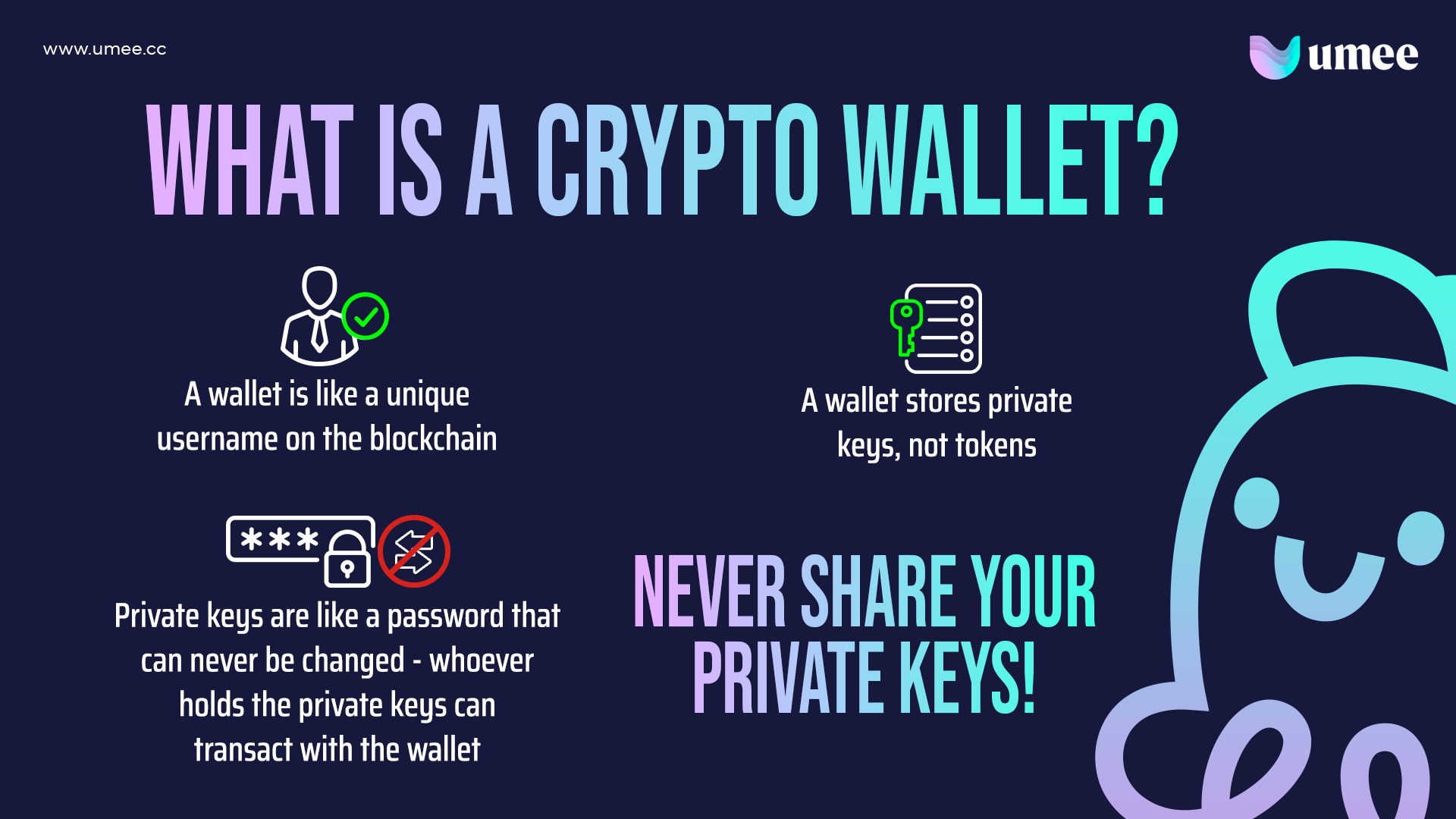Crypto Wallets
What is a Crypto Wallet?
A crypto wallet is a tool that allows users to easily interact with blockchain-based applications. Interestingly, crypto wallets don’t actually store crypto, but rather the “private keys” required to approve crypto transactions on a blockchain. Crypto always remains on a blockchain regardless of who owns it or how it is used, and crypto wallets serve as an interface to let a user interact with the crypto associated with his/her “wallet address.”
Anyone with an internet connection has the ability to create a crypto wallet with no personal information or payment required.
Wallet Address
Similarly to how a Twitter handle can be used to find any Twitter user and the information associated with their account, a wallet address can be used to find any crypto user on a specific blockchain and the transaction history associated with their wallet. Unlike a Twitter handle which is only used across Twitter, a single wallet address can be used to interact with all of the applications built on top of a blockchain - this is incredbily convenient for users who can securely use a single wallet address for all of their online activities.
Wallet addresses aren’t chosen by users, but rather generated and assigned to them when they create wallets. Wallet addresses are usually displayed as random strings of letters and numbers - and wallet addresses on different blockchains generally have different prefixes.
All Umee wallet addresses start with “umee.”
Private Keys
In order to actually control a Twitter account, users also need to have the password associated with the specific username. In crypto, in order to actually transact from an account, users also need to have the private keys associated with the wallet address.
While a Twitter password is created by a user and can be reset if compromised or forgotten, private keys are randomly generated during the wallet creation process and can never be altered. Private keys are incredibly long strings of letters and numbers that are difficult for humans to handle as they would with a password. When a crypto user approves a transaction from their wallet, their wallet uses their private keys to prove to the blockchain that they have authorized the transaction.

Seed Phrase
During the wallet creation process users are instructed to write down a series of 12 or more words called a seed phrase. A seed phrase is simply a reformatted version of private keys that is easier for humans to keep track of. If a user loses access to their crypto wallet, the seed phrase can be used to restore their account.
Since a seed phrase is just a different format for private keys and private keys can never be altered, it’s incredibly important for all crypto users to write down their seed phrase and hide it somewhere safe. Anyone who has access to the seed phrase will be able to access the funds associated with the wallet it represents.
A seed phrase cannot be reset if lost. If you lose your seed phrase you will be unable to recover the wallet it is associated with.
The only time a crypto user will need to enter their seed phrase ANYWHERE is when they are restoring their wallet on a new device.
Types of Crypto Wallets
Wallet Safety
Since blockchains are permissionless, no single person's transactions can be blocked or censored without a network wide consensus being reached. While this decentralized and trustless system makes it more easily accessible for people all over the world, it also attracts bad actors who will attempt to scam newcomers and take advantage of these irreversible and permissionless transactions.
Essential Safety Practices:
- Never share your seed phrase or mnemonic with anyone for any reason;
- Never enter your seed phrase or mnemonic anywhere;
- Never engage with unknown links that are shared with you;
- Never screen share with a stranger;
- Never sign unknown transactions;
- Use a hardware wallet for extra security.
Learn More
Take the Quiz
Take this 5 question quiz to show what you've learned and unlock an Umeeversity NFT badge!








